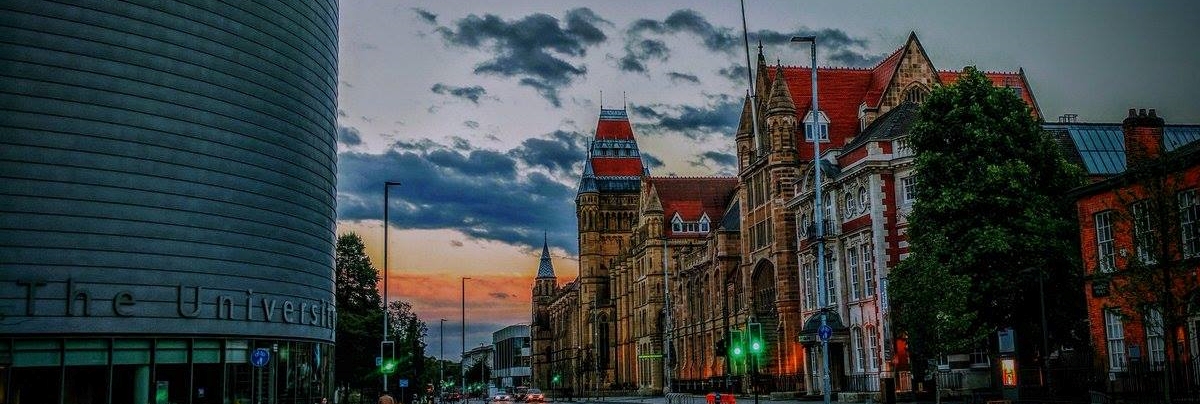
Digital Democracy: Governance and Resistance in a Digital Era
Dr James Muldoon (Exeter), Dr Rahel Süß (Humboldt), Roberta Fischli (St Gallen)
University Place 5.210 (hybrid)
Democratic politics increasingly takes place in digital environments and is mediated by digital technologies. This workshop explores the possibilities and pitfalls of democratic politics by drawing on political theory to understand and critique emerging patterns at the intersection of democracy and technology. We need a better understanding of how pressing political issues – climate change, global inequalities, and new forms of oppression – are entangled with the use of digital technologies which reshape our ideas of freedom, equality, power, and democracy.
To do so this workshop will explore the following questions (1) how should we understand the transformation of democratic politics in a digital era in which many democratic processes are now digitally mediated? (2) what normative conceptions of democracy and digital technology will assist us in confronting recent challenges posed by these transformations? (3) what new forms of governance and resistance have emerged in this digital era and how should we respond?
The role of digital technology in democratic politics is yet to be sufficiently explored within political theory. Although political theory has come late to the question, it is well situated to help us interrogate both the conceptual and normative problems raised by these new forms of politics. Theorists have a wide variety of resources within the tradition of political theory including in the history of political thought, contemporary analytic political philosophy and critical theory for understanding the structure, role and purpose of technology. These tools allow theorists to analyse the extent to which connection and access should be considered as empowering forces, or whether they open a new digital divide between democratic subjects.
|
Wednesday 7th September
|
|
|
11:00-12:30 |
Registration |
|
12:30-13:30 |
Lunch |
|
13:30-14:00 |
Welcome Speech |
|
14:00-16:00 |
Session 1 Alina Utrata (University of Cambridge): Custodians of the Cloud: Cloud Computing, Corporations and Property Enforcement Margarita Boenig-Liptsin (ETH Zürich): Digital Demos: Perspectives from projects to constitute citizens with computers at the dawn of the information age (online) |
|
16:00-16:30 |
Tea and Coffee Break |
|
16:30-17:30 |
Session 1 (continued) Roberta Fischli (University of St. Gallen), James Muldoon (University of Exeter), Rahel Süß (Humboldt-University of Berlin): Empowering Digital Democracy |
|
17:45-19:00 |
Wine Reception
|
|
19:30 |
Conference Dinner
|
|
Thursday 8th September
|
|
|
9:30-11:30 |
Session 2 Andreas Oldenbourg (Berlin-Brandenburgische Akademie der Wissenschaften): Boundaries of Digital Demoi Anna Mikhaylovskaya and Élise Rouméas (University of Groningen): Building Political Trust with Digital Democratic Innovations (online)
|
|
11:30-12:00 |
Tea and Coffee Break |
|
12:00-13:00 |
Session 2 (continued) Jonas Fegert & Pauline Reitzer (Karlsruhe Institute of Technology): Why Is It So Difficult to Create Open and Free Spaces in the Digital Sphere?
|
|
13:00-14:00 |
Lunch |
|
14:00-16:00 |
Session 3 Ben Turner and Joseph Jones (University of Kent): Automated Management Technologies: An Impediment for Workplace Democracy Tim Christiaens (Tilburg University): Convivial Autonomy and Labour Platforms
|
|
16:00-16:30 |
Tea and Coffee Break |
|
16:30-17:30 |
Session 3 (continued) Rory O’Neill (King’s College London) The creation of art under platform socialism
|
|
Friday 9th September
|
|
|
9:30-11:30 |
Session 4 Naomi Appelman (University of Amsterdam): Algorithmic content moderation through an agonistic lens: contesting online exclusion Uǧur Aytaç (University of Amsterdam): Big Tech, Algorithmic Power, and Democratic Control |
|
11:30-12:00 |
Tea and Coffee Break |
|
12:00-13:00 |
Session 4 (continued) Gijs van Maanen (Utrecht University) & Nadya Purtova (Utrecht University): Data commons: commonswashing, digital sovereignty, and data ownership |
|
13:00-14:00 |
Lunch |
|
14:00-16:00 |
Session 5 Nika Mahnič (Queen Mary, University of London): Information technology and state (de)formation Kebene Wodajo (University of St. Gallen): The de facto regulated state and regulator firm: revisiting platform companies’ human rights obligations (online) |
|
16:00-16:30 |
Tea and Coffee Break |
|
16:30-17:30 |
Session 5 (continued) No activities |
|
17:30 |
End of Conference |
